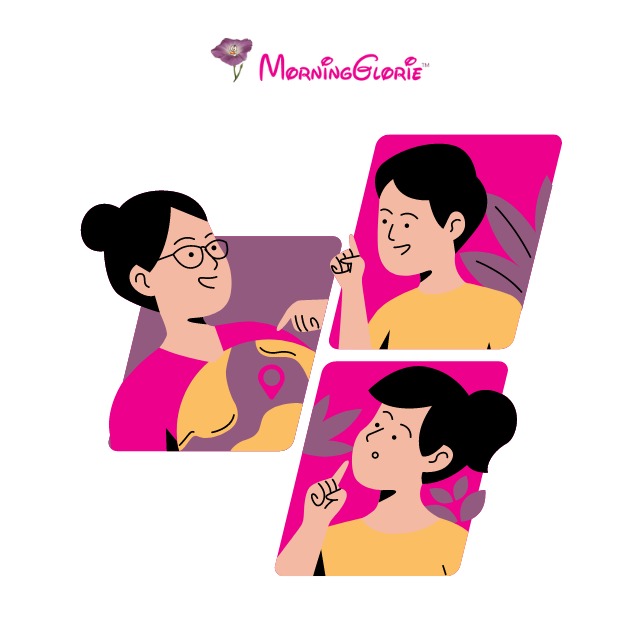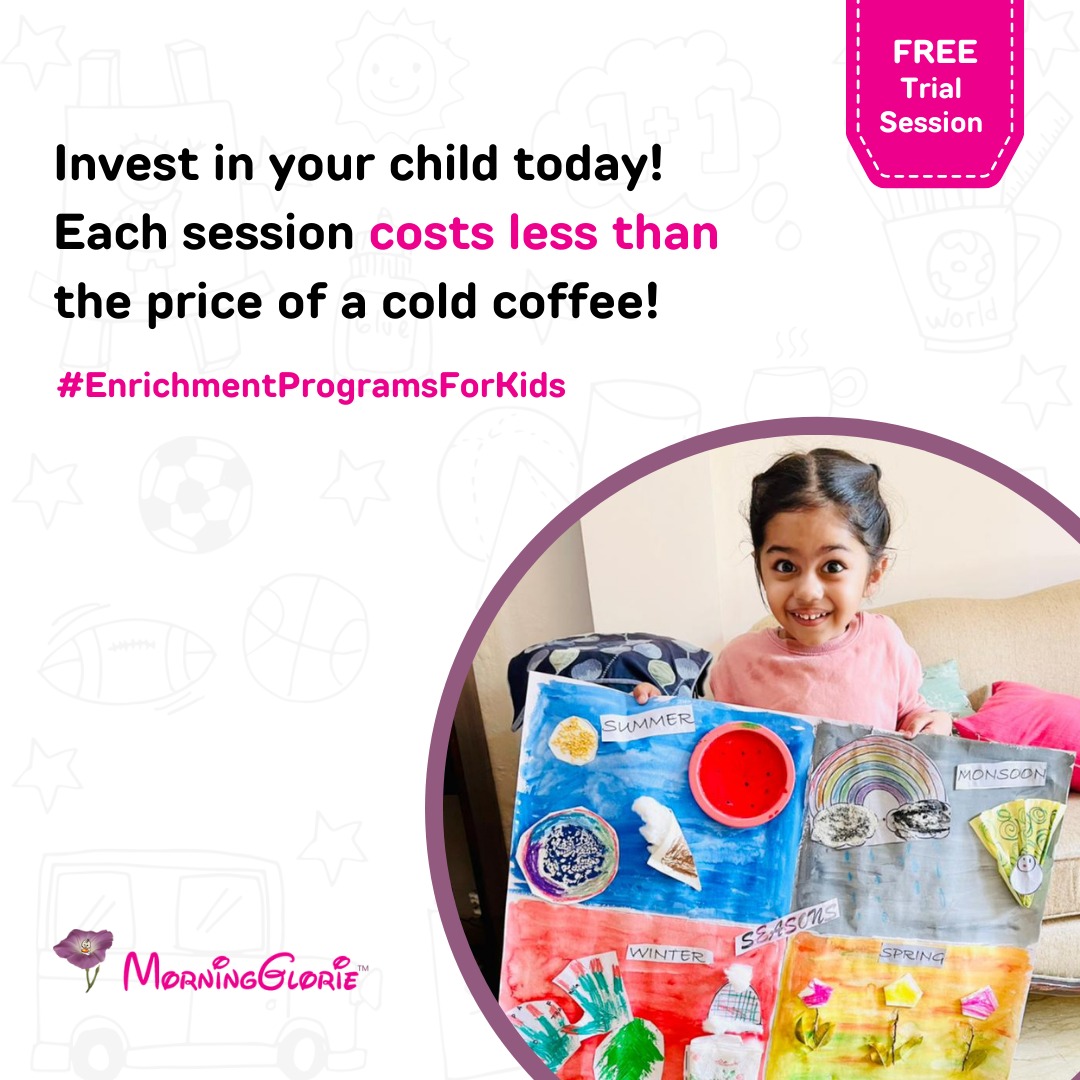In education, experiential learning is a well-known yet often not executed paradigm. Morning Glorie focuses on experiential learning for children for holistic personality enrichment, where we integrate learning with fun. In India, most schools still use a basic academic, theoretical approach. At Morning Glorie, the theory is backed by experiential learning to create an understanding-based learning atmosphere.
Even if a child attends a school that emphasises theoretical topics, our program may serve as a bridge by emphasising activity-based learning and be just as effective as an after-school program. Morning Glorie’s online program for children includes personality development, right brain development, language development, among many more modules that believe in hands-on learning. Being online, the program gives you access to the best, trained facilitators no matter where you are. Being live ensures that a child’s response to a stimulus is accounted for when taking any concept ahead.
What Is Experiential Learning?
Experience is a fantastic teacher. Children “learn by doing” and then reflect on what they’ve learned in experiential learning. Hands-on learning through simple everyday objects helps children understand concepts with ease. For example, understanding the concepts of shapes by learning about everyday objects such as handkerchiefs or bowls helps children decipher the shapes of squares or circles.
The cycle starts with a student’s personal experience, followed by a chance to reflect on that event. Students can then draw assumptions and conceptualise what they’ve seen and experienced, leading to future actions in which they try out new behaviours. For example, for sensory development, one can use kitchen items. Real objects such as salt or sugar are used to understand taste, while textures of objects like scrubs and cotton are used to develop a sense of touch. As a result of their exploration, children get new experiences, which restarts the cycle.
When students can apply what they’ve learned through hands-on experience, it’s often just what they need to really solidify their understanding. Experiential learning aids a child’s understanding and retention of an idea by allowing them to experience it firsthand. This is especially important in the pre-primary years since it aids in the development of problem-solving and critical-thinking abilities.
Why Is Experiential Learning Important For Personality Enrichment?
When a youngster can give their complete attention to a topic, especially if it provides an age-appropriate challenge, learning and development occur faster. Experiential learning is a pleasant alternative as well as supplement to standard classroom instruction that can help with the following areas of development and learning:
Memory retention: When children act on information and are completely engaged in it, they get a better knowledge of it. When a youngster links motor functions with new knowledge, synapses (nerves in the brain) build stronger connections, resulting in better memory retention.
Proper energy utilisation: Experiential learning necessitates effort and focuses simply because it is an activity that children may engage in. As a result, the class becomes a more individualised hands-on discovery activity.
Significant development takes place: Practical knowledge is often obtained when children face hurdles and are given the chance to improve their problem-solving abilities to overcome these obstacles. Allowing toddlers to engage in daily activities actively can help them develop life skills that will help them grow and learn in the future.
Emotional development: Experiential learning provides children with a sense of success, which boosts their self-esteem and encourages them to continue learning. When children take control of a situation with the assistance of adults, they learn how to pursue their goals without being scared to attempt new things or struggle at first.
The advantages of adding experiential education opportunities are numerous, and they may benefit a broad spectrum of children.
Morning Glorie’s Online Program For Children
Morning Glorie offers a spectrum of online programs for children in the 2 to 8 year age group – all of which are centred around experiences for learning. The modules are designed to develop essential skills for toddlers, such as communication skills, lateral thinking, and problem-solving skills. We make every attempt to understand your child’s innate personality and assist them in better expressing their uniqueness.
Morning Glorie’s programs also help children develop life skills that help them understand the world around them more profoundly and holistically. Our modules are designed to keep the child and their learning faculties first. This enables us to provide a learning experience that helps them grasp concepts more thoroughly with greater retention.
Our online programs also allow you to access the best online preschool facilitators wherever you are and in your desired time slot. Moreover, our experiential learning approach makes our classes fun and engaging, which keeps your children hooked!
Experiential learning helps students apply their knowledge and conceptual understanding to real-world issues or circumstances and examine their strengths and weaknesses and areas of interest and passion, with the added benefit of reflection after the direct experience.
Students, educators, and employers embrace experiential education for its ability to connect town and gown, bring fresh ideas and innovations into the classroom through reciprocal partnerships, and inspire and enlighten students in their career path choices.

